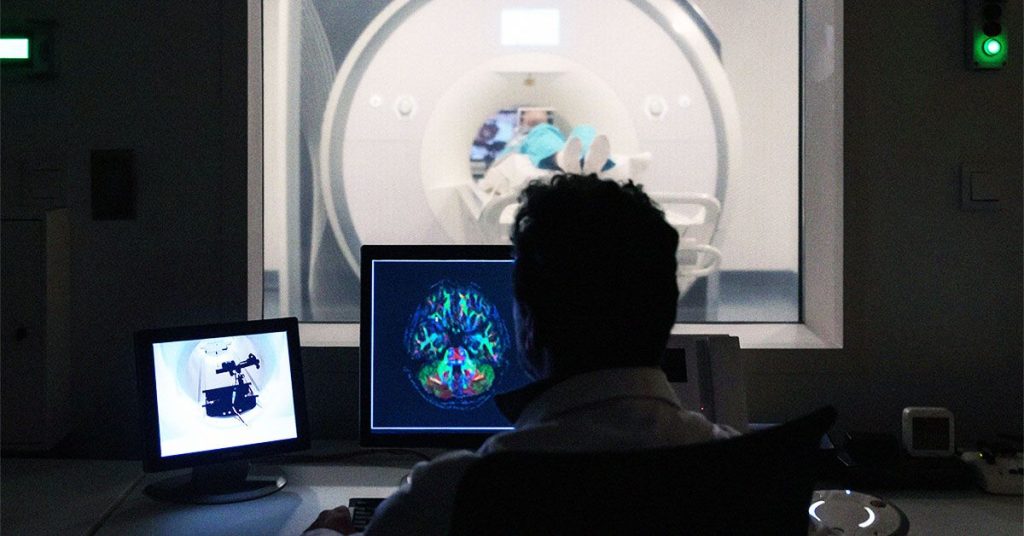A new machine learning model has been developed that can predict the occurrence of dementia with over 80% accuracy, up to nine years before diagnosis. This model was created by analyzing functional magnetic resonance imaging (fMRI) scans of individuals with and without dementia to spot changes in the brain’s default mode network (DMN). The researchers collected fMRI scans from the UK Biobank, including individuals who developed dementia within nine years after their scans were taken. They found that their model accurately predicted dementia within a two-year window when applied to medical records of participants.
The study, led by researchers at Queen Mary University of London, also looked at the connection between DMN disconnectivity and various dementia risk factors. The model was associated with social isolation, a known risk factor for developing Alzheimer’s disease, as well as a genetic risk for the condition. The hope is that early detection of dementia may lead to early interventions that could potentially delay or prevent the onset of the disease. However, the study aims to detect all-cause dementia, not just Alzheimer’s disease, as dementias can differ significantly.
Dr. Claire Sexton from the Alzheimer’s Association noted that the DMN has been implicated in Alzheimer’s disease, with studies showing decreased functional connectivity within the network in individuals with the condition. The model developed by the researchers focuses on identifying patterns of activity in the brain that are indicative of dementia. Despite the potential benefits of early detection, there are limitations to the study, including variations in the definition of DMN disconnectivity across studies and the predominantly white, healthier population from which the data was drawn.
Neurologist Clifford Segil emphasized the importance of developing new models for diagnosing cognitive issues before they manifest as symptoms, particularly targeting the DMN. He pointed out that while fMRI studies may offer valuable insights, reproducibility and consistency in interpreting these scans remain challenging. Ultimately, the goal is to use these predictive tools to select appropriate candidates for clinical trials of future neuroprotective medications, as treatments for dementia are still limited. Researcher Charles Marshall hopes that as interventions evolve, the predictive test developed in this study could be utilized to identify individuals who would benefit most from these treatments.
The study published in Nature Mental Health sheds light on the potential of machine learning in predicting dementia and highlights the significance of early detection in improving patient outcomes. Despite challenges in generalizability and reproducibility, continued research in this area could offer valuable insights into the underlying mechanisms of dementia and pave the way for innovative diagnostic and therapeutic strategies in the future.













